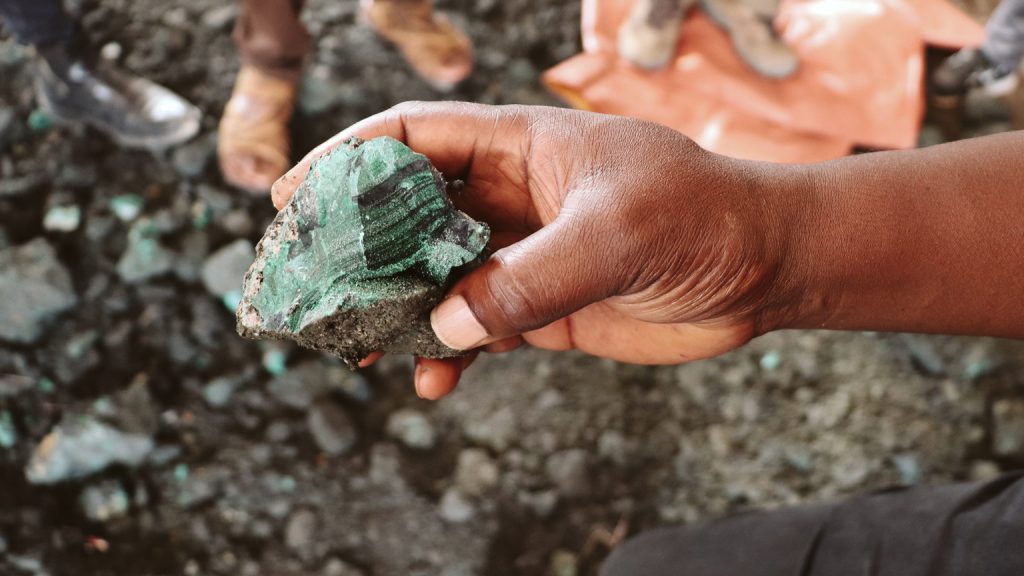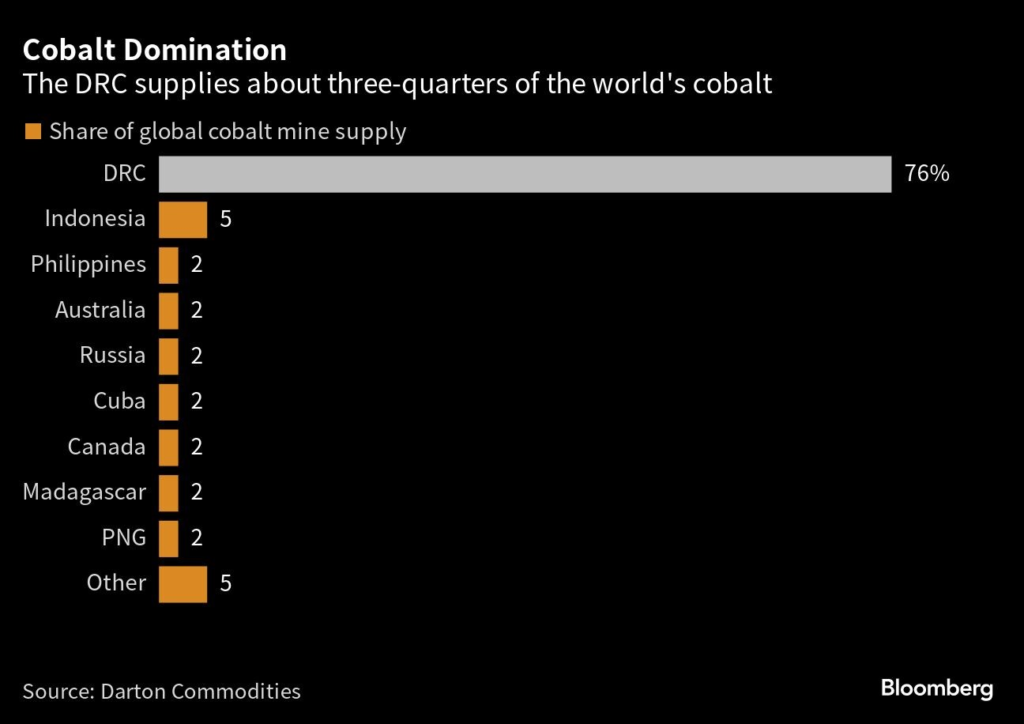Bloomberg News | August 24, 2023 |

More than three-quarters of the world’s cobalt comes from Congo. Credit: The Impact Facility
The Democratic Republic of Congo wants to buy back some of the country’s prized copper and cobalt deposits, as the government tries to gain more control of crucial green metals.

The assets are some of those owned by Eurasian Resources Group, a Kazakh-backed miner and major cobalt producer with dozens of DRC mining and exploration permits. The government and state-owned miner Gecamines say ERG has been too slow to develop them — and Gecamines in June told ERG it wants to take some over, according to a July letter seen by Bloomberg that was sent by the office of Congolese President Felix Tshisekedi to ERG’s shareholders.

The offer didn’t include ERG’s key Metalkol copper and cobalt tailings project or its Frontier copper mine, and no price was mentioned in the letter.
It’s the latest attempt by the DRC and Gecamines to regain control of vast deposits of minerals used in things like electric-vehicle batteries. Despite supplying about 75% of the world’s cobalt and being a major copper producer, most DRC mines are foreign-owned. Relations between the state and miners have also been strained by issues over environmental damage and a lack of local investment.
ERG didn’t confirm that Gecamines had made an offer to buy its assets or whether it’s interested in selling any. Talks “are ongoing between ERG and representatives or certain of its affiliates in the DRC, with the objective of maintaining mutually beneficial partnerships,” it said in a statement this month.
Gecamines executives and President Tshisekedi’s office declined to comment. Congo’s mining ministry didn’t respond to multiple messages requesting comment.
Gecamines has already tried to take control of one of ERG’s undeveloped copper and cobalt assets. In a February letter seen by Bloomberg, it told ERG’s Africo Resources DRC Sarl subsidiary that it was cancelling its undeveloped Swanmines joint venture and demanded the return of the permit for the Kalukundi concession due to a lack of development.
ERG’s Africo is fighting that decision at the International Chamber of Commerce’s arbitration court.
ERG declined to comment on the case, but said it values its relationship with Gecamines and other key stakeholders in the DRC.
“ERG is of the view that any issue can be overcome and settled through open and transparent dialogue,” it said.

Closely held ERG is registered in Luxembourg and is 60% controlled by its founders, Alexander Machkevitch, Patokh Chodiev, and the heirs of late founder Alijan Ibragimov. The Kazakhstan government owns the remaining 40%.
ERG’s DRC interests also include 18 permits near the Zambia border and control of a lease on multiple tailings dumps that may hold more than 2.5 million tons of copper and almost 230,000 tons of cobalt.
Many of the nation’s mining deals were struck more than a decade ago when it was struggling to secure financing after years of war. Now, the state is pushing for better terms.
For example, this year Gecamines reached an agreement with China’s CMOC Group Ltd. after a long-running spat over mining royalties that halted exports from the Tenke Fungurume copper and cobalt mines. The government is also in talks with China about renegotiating a $6.2 billion minerals-for-infrastructure deal.
The government is starting to enforce laws requiring companies to implement community development plans and curb environmental damage too. Operations at ERG’s Boss Mining — which Gecamines owns a stake in — were suspended in May for at least three months over environmental concerns.
Mining investment
In the July letter sent to ERG’s shareholders that mentioned Gecamines’s June offer to buy assets, President Tshisekedi’s office said the company failed to make “billions” of promised investments last year.
ERG said in its annual report that it renegotiated, amended or terminated more than $1 billion in credit lines with Russian banks last year in the wake of sanctions on Moscow over the war in Ukraine. It told Bloomberg it plans to invest $2 billion in the DRC within the next two years.
The miner this month also agreed to a community development plan for its Comide copper and cobalt project, which has been on care and maintenance. Work to prepare for future operations should begin by year-end, it said.
(By Michael J. Kavanagh)
No comments:
Post a Comment